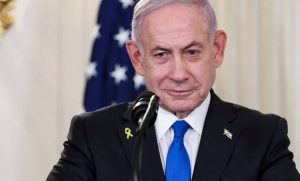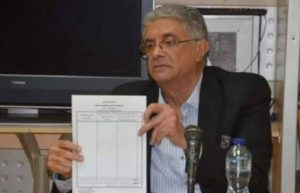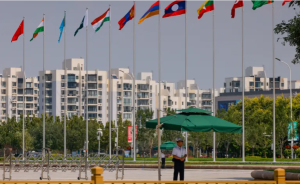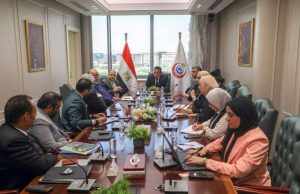The conflict on the Korean Peninsula between North and South Korea is one of the world’s oldest ongoing conflicts, fluctuating between escalation and détente for over seven decades. In an analysis published by the American magazine National Interest, North Korean defector political analyst Hyun Seung Lee states that “dialogue is one of the camouflage tools used by North Korea to hide its true intentions from South Korea.” It is expected that the debate over North Korea will return to Washington’s decision-making circles alongside South Korean President Lee Jae-myung’s visit and his summit with U.S. President Donald Trump. According to Hyun Seung Lee, a researcher at the Global Peace Foundation, Lee tries to promote the idea that reconciliation with Pyongyang will naturally lead to peace on the Korean Peninsula, portraying himself as a “peacemaker” similar to previous liberal South Korean presidents.
However, this optimism is not only naive but also dangerous, ignoring decades of evidence that North Korea exploits “dialogue” as a cover for provocation and survival. With a left-leaning president in South Korea, calls for reconciliation and optimistic talk of possible peace have increased, unlike when the right is in power, which tends to escalate against North Korea. Leftist leaders in Seoul believe that if South Korea simply seeks reconciliation with the North, tensions will ease and the specter of war will fade. This narrative is attractive, based on the promise of dialogue instead of confrontation and economic cooperation instead of deterrence. But it is a dangerous illusion that ignores North Korea’s regime’s duplicity and prioritization of its survival above all else.
Hyun argues that North Korea has never considered peaceful coexistence; its ruling regime’s rhetoric remains hostile, its stance aggressive, and its actions consistent with long-term confrontation with both the South and the United States. Kim Yo-jong, sister of North Korean leader Kim Jong-un and one of Pyongyang’s most powerful voices, recently described Seoul’s peace initiatives as nothing but “unrealistic dreams” and declared that her country “will never” consider South Korea a diplomatic partner. These words are not a slip of the tongue but reveal the essence of North Korea, which thrives on hostility, maintains its existence through constant confrontation, and views reconciliation not as an end in itself but as a means to achieve its goals. History confirms the futility of believing that warmer rhetoric or unilateral concessions from Seoul can change this dangerous course.
The “Sunshine Policy,” promoted in the early 2000s, poured billions of dollars from South Korea into North Korea to encourage bilateral cooperation. For a time, the overall picture was encouraging, with leaders shaking hands, border villages experiencing cautious optimism, and the demilitarized zone enjoying a brief respite from tension. However, all these resources provided by the South were not used to improve the welfare of ordinary North Koreans but were directed toward weapons development and purchasing luxury goods for the ruling family. The subsequent North Korean missile tests were among the fruits of this misplaced generosity, according to analyst Hyun Seung Lee, who served in the North Korean army and worked for years in maritime transport and mining before defecting. Hyun says that dialogue advocates often overlook that North Korea has always used dialogue tactically.
The regime does not intend for negotiations to end in a settlement but aims to buy time. Each round of talks gives Pyongyang enough time to advance its nuclear and missile programs and bolster its legitimacy. Therefore, the greatest danger of such unjustified optimism is that it weakens deterrence capabilities. If Seoul reduces joint military exercises with the U.S., cuts investments in missile defense, or weakens sanctions enforcement on the North, the latter will respond with more provocations rather than positive engagement. At the same time, the risks go beyond deterrence. Reconciliation rhetoric also threatens the foundations of the U.S.-South Korea alliance. The Northeast Asian security structure assumes that Washington and Seoul operate in clear harmony. If South Korea prioritizes unilateral engagement with the North at the expense of alliance cohesion, it undermines extended deterrence credibility and encourages parties hostile to the U.S.
and its allies in the region. Meanwhile, growing coordination between Russia, China, and North Korea leaves Seoul no room to consider straining relations with its most important ally. Finally, Hyun believes that true peace on the Korean Peninsula cannot be built on feelings alone. Dialogue is important and should not be ignored, but it must be based on a clear understanding of the adversary. North Korea has repeatedly proven that it views communication and dialogue as a means to enhance its military capabilities and prolong its dictatorship, not as a path to peace. Any South Korean strategy dealing with the northern neighbor that ignores this fact will be a mistake and yield no real benefit.













Recommended for you
Exhibition City Completes About 80% of Preparations for the Damascus International Fair Launch
Talib Al-Rifai Chronicles Kuwaiti Art Heritage in "Doukhi.. Tasaseem Al-Saba"
Unified Admission Applications Start Tuesday with 640 Students to be Accepted in Medicine
Egypt Post: We Have Over 10 Million Customers in Savings Accounts and Offer Daily, Monthly, and Annual Returns
His Highness Sheikh Isa bin Salman bin Hamad Al Khalifa Receives the United States Ambassador to the Kingdom of Bahrain
Al-Jaghbeer: The Industrial Sector Leads Economic Growth